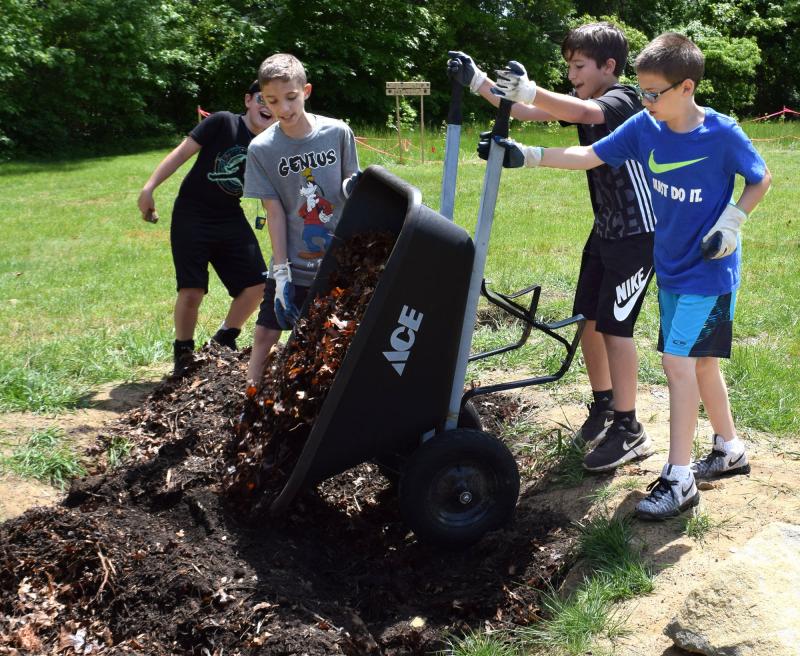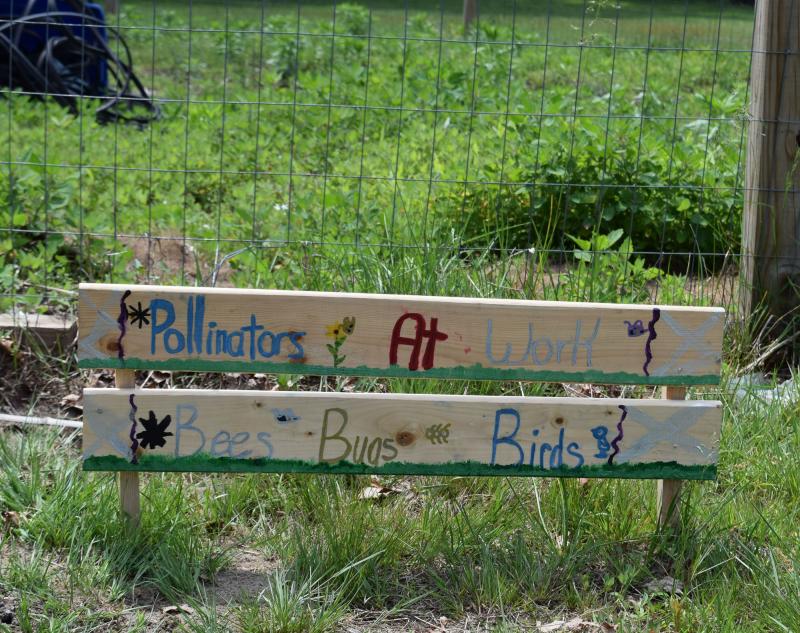Elementary school garden grows more than produce
On a sunny Friday afternoon, Potter Elementary School fifth graders took out power tools, donned their gardening gloves, and got down in the dirt.
It’s a cycle that happens every Friday during the fifth grade STEM block, a period that encourages hands-on learning and discovery. Fifth grade teacher Anne Goodman manages a garden located on school grounds, which is an integral part of the weekly enrichment activity.
Goodman began the garden several years ago with funding from the Dartmouth Education Foundation. What started as small raised flower beds close to the building has now grown into multiple gardens, a pumpkin patch, and a soon-to-be pollinator garden.
Currently, students are prepping the main garden for pumpkins and are building new raised beds for the pumpkin patch. The gardens are designed so planting and harvesting seasons coincide during the regular school year. Pumpkins are an especially popular feature of the garden because of what happens once they are harvested in the fall.
“The best thing about the pumpkin patch is each year we cook them and serve them for lunch,” Goodman said. “It teaches sustainability – where our food is coming from.”
Except for occasional help from volunteers during the summer and weekends, the garden is entirely student-run by a team of 75 fifth grade students who take turns caring for it each week. They handle everything from seed planting to using power tools to construct wooden raised flower beds.
To supplement DEF funding, students even came up with the idea of a seed business. Students sell the seeds to gardeners and farmers, and proceeds go back to managing the garden.
“The seeds have really been profitable,” Goodman said. “The garden is self-sustaining. We get by with minimal funds.”
Gardening also helps build problem-solving skills and lets students express their creativity. Fifth grader Alexus Mosher helped plant trees last year, but noticed a higher than anticipated failure rate. She thinks she knows why.
“A lot of young kids run around here and trample right over them,” Mosher said. She thinks better fencing will solve that issue and increase her success rate.

















